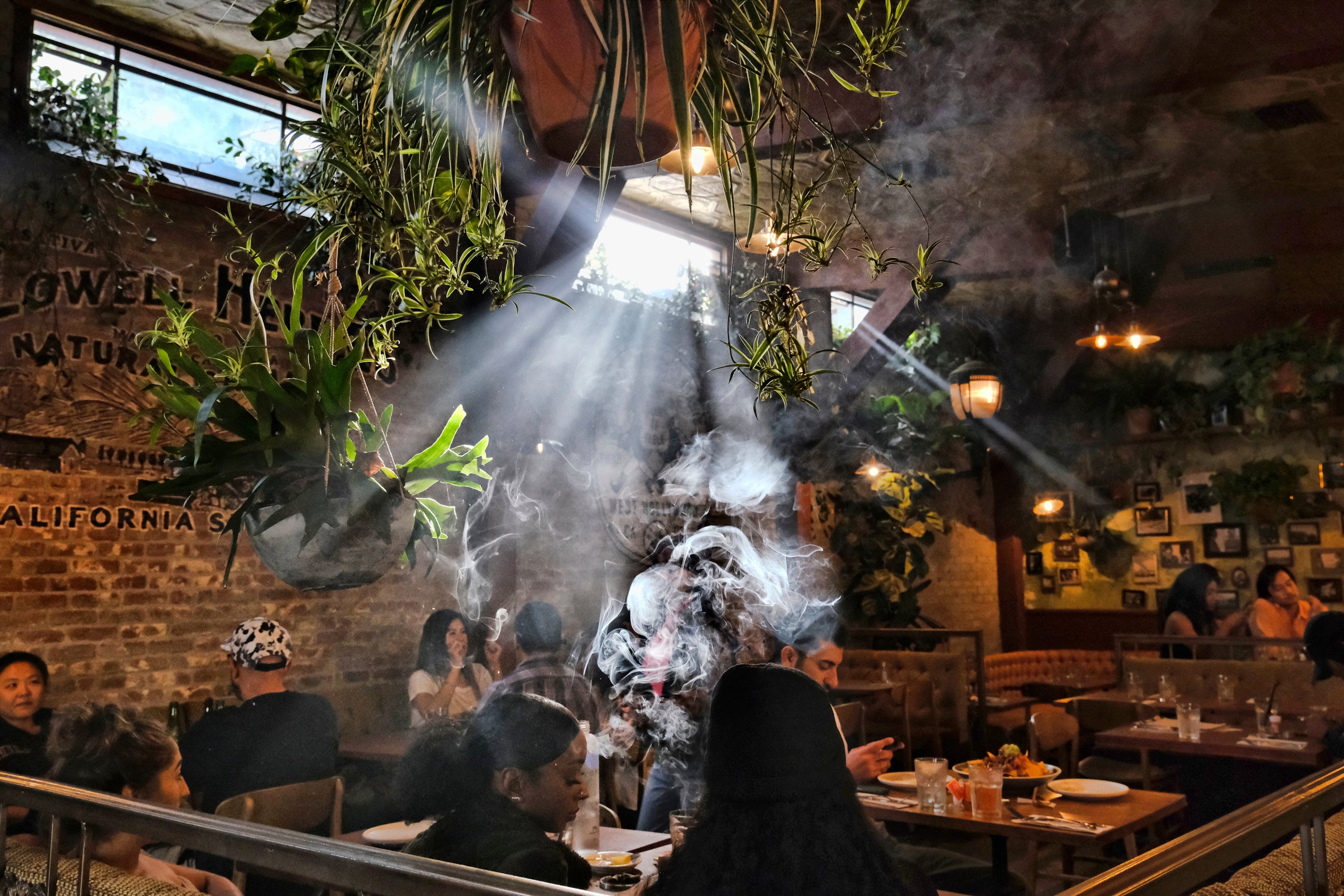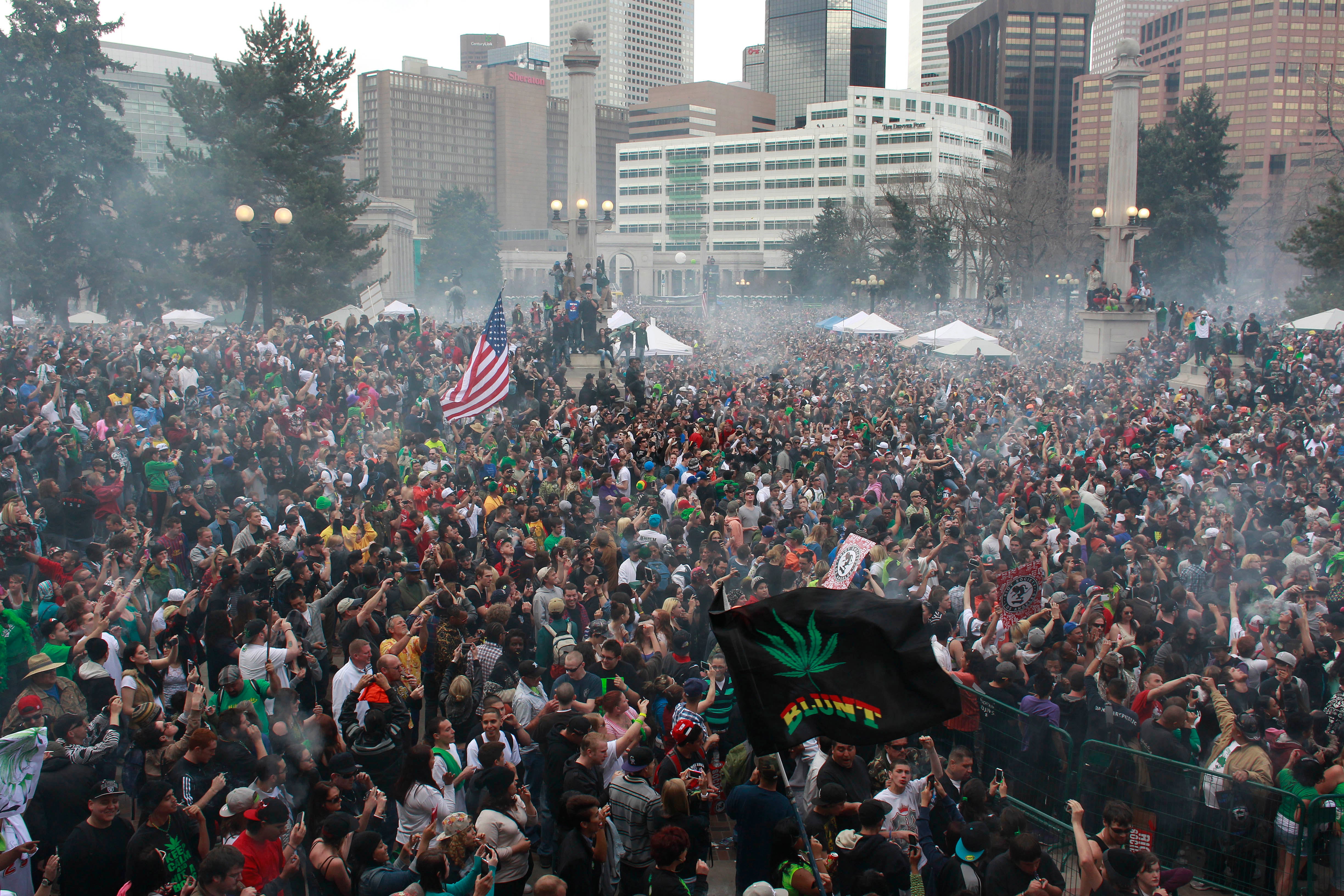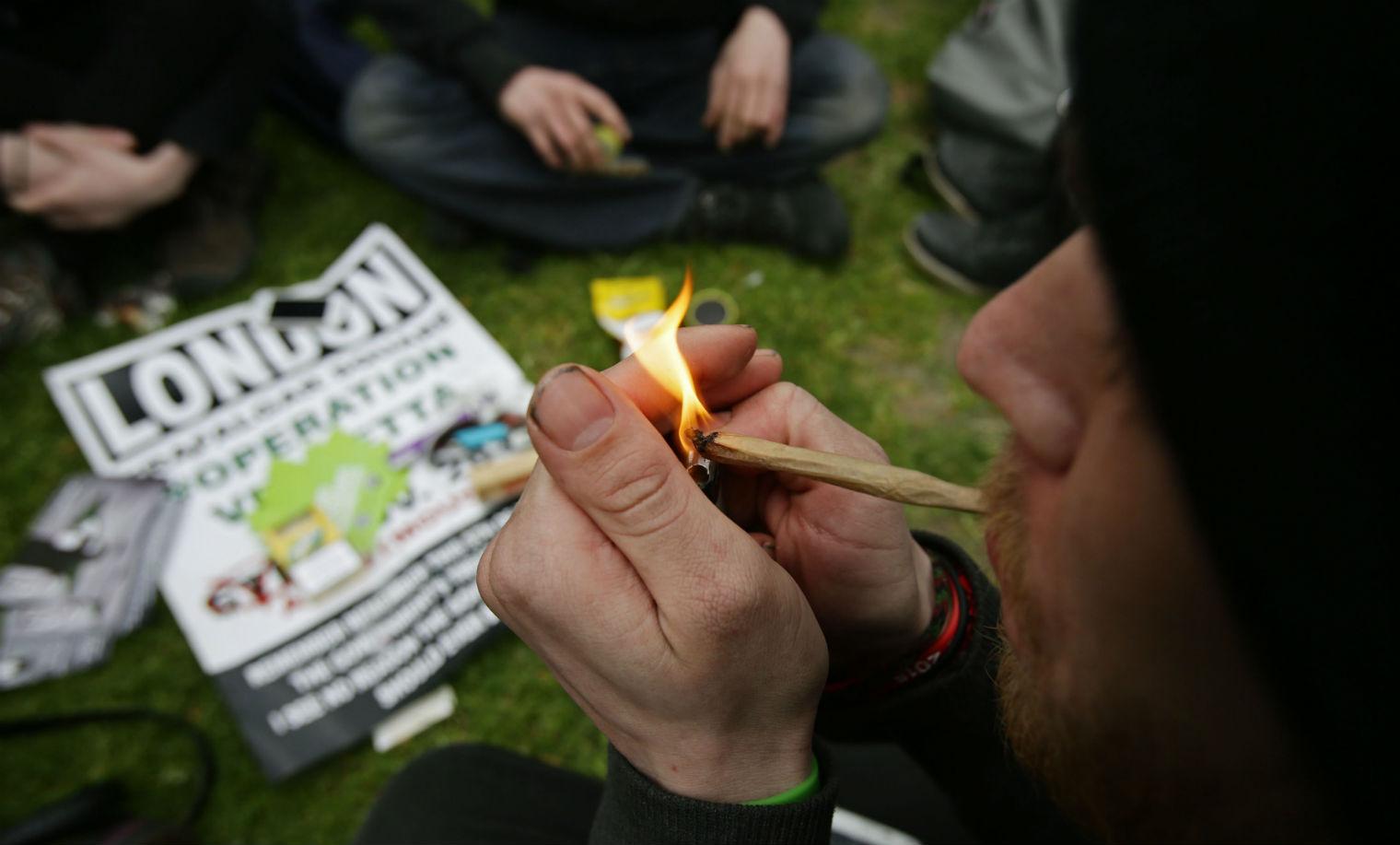What does 4/20 mean? Origin, celebrations, and everything to know ahead of ‘holiday’
Annual event on 20 April celebrates marijuana use across the world and campaigns for its legalisation

Your support helps us to tell the story
From reproductive rights to climate change to Big Tech, The Independent is on the ground when the story is developing. Whether it's investigating the financials of Elon Musk's pro-Trump PAC or producing our latest documentary, 'The A Word', which shines a light on the American women fighting for reproductive rights, we know how important it is to parse out the facts from the messaging.
At such a critical moment in US history, we need reporters on the ground. Your donation allows us to keep sending journalists to speak to both sides of the story.
The Independent is trusted by Americans across the entire political spectrum. And unlike many other quality news outlets, we choose not to lock Americans out of our reporting and analysis with paywalls. We believe quality journalism should be available to everyone, paid for by those who can afford it.
Your support makes all the difference.Saturday is 20 April, marking marijuana culture’s high holiday, with cannabis users across the globe set to come together and light up in honour of 4/20.
The annual event is observed as a means of celebrating marijuana use as well as campaigning for its legalisation in parts of the world where it is prohibited.
From the meaning of 4/20, to its origins, and how the day is celebrated, here is everything you need to know ahead of the event:
What does 4/20 mean?
4/20 is an annual event taking place on 20 April (the date is 20/4 or in the American date format 4/20), in celebration of cannabis.
While 4/20 is widely used in common vernacular in reference to the date of the event, it also relates to the origin of the observance, the history of which can be traced back to the early 1970s in California.

What are the origins of 4/20?
The origins of the date, and the term "420" generally, were long murky. Some claimed it referred to a police code for marijuana possession or that it derived from Bob Dylan's "Rainy Day Women No. 12 & 35," with its refrain of "Everybody must get stoned" – 420 being the product of 12 times 35.
But the prevailing explanation is that it started in the 1970s with a group of friends from San Rafael High School, in California's Marin County north of San Francisco, who called themselves "the Waldos" - Steve Capper, Dave Reddix, Jeffrey Noel, Larry Schwartz and Mark Gravich. A friend's brother was afraid of getting busted for a patch of cannabis he was growing in the woods at nearby Point Reyes, so he drew a map and gave the teenagers permission to harvest the crop, the story goes.
During the fall of 1971, at 4:20pm, just after classes and football practice, the group would meet up at the school's statue of chemist Louis Pasteur, smoke a joint and head out to search for the weed patch. They never did find it, but their private lexicon – "420 Louie" and later just "420" – would take on a life of its own.
The Waldos saved postmarked letters and other artifacts from the 1970s referencing "420," which they now keep in a bank vault, and when the Oxford English Dictionary added the term in 2017, it cited some of those documents as the earliest recorded uses.
A brother of one of the Waldos was a close friend of Grateful Dead bassist Phil Lesh, as Lesh once confirmed in an interview with the Huffington Post, now HuffPost. The Waldos began hanging out in the band's circle and the slang spread.

Fast-forward to the early 1990s: Steve Bloom, a reporter for the cannabis magazine High Times, was at a Dead show when he was handed a flier urging people to "meet at 4:20 on 4/20 for 420-ing in Marin County at the Bolinas Ridge sunset spot on Mt. Tamalpais." High Times published it.
"It's a phenomenon," one of the Waldos, Steve Capper, now 69, once told The Associated Press. "Most things die within a couple years, but this just goes on and on. It's not like someday somebody's going to say, 'OK, Cannabis New Year's is on June 23rd now."'
While the Waldos came up with the term, the people who made the flier distributed at the Dead show – and effectively turned 4/20 into a holiday – remain unknown.
How is 4/20 celebrated?
While it began in the US, 4/20 has since become a celebration observed all over the world.
In addition to the widespread smoking of cannabis that happens on 20 April, several events also take place to mark the occasion.
Each year, thousands of cannabis users meet in Hyde Park, London, in celebration of 4/20 and to protest the existing laws prohibiting use and possession of cannabis in the UK.

In the US, where 4/20 originated, organised rallies normally take place in states including Colorado, California, Michigan, and Florida.
Some celebrations in the US are bigger than others: The Mile High 420 Festival in Denver, for example, typically draws thousands and describes itself as the largest free 4/20 event in the world. Hippie Hill in San Francisco's Golden Gate Park has also attracted massive crowds, but the gathering was cancelled this year, with organisers citing a lack of financial sponsorship and city budget cuts.
College quads and statehouse lawns are also known for drawing 4/20 celebrations, with the University of Colorado Boulder historically among the largest, though not so much since administrators banned the annual smokeout over a decade ago.
Some breweries make beers that are 4/20-themed, but not laced, including SweetWater Brewing in Atlanta, which is throwing a 420 music festival this weekend and whose founders went to the University of Colorado.
Lagunitas Brewing in Petaluma, California, releases its "Waldos' Special Ale" every year on 4/20 in partnership with the term's coiners. That's where the Waldos will be this Saturday to sample the beer, for which they picked out "hops that smell and taste like the dankest marijuana," one Waldo, Dave Reddix, said via email.
4/20 has also become a big industry event, with vendors gathering to try each other's wares.
Join our commenting forum
Join thought-provoking conversations, follow other Independent readers and see their replies
Comments